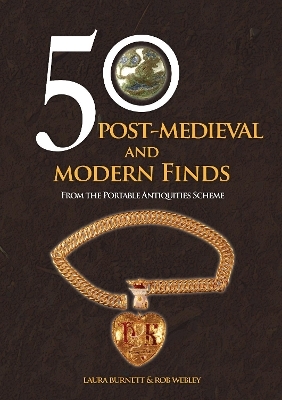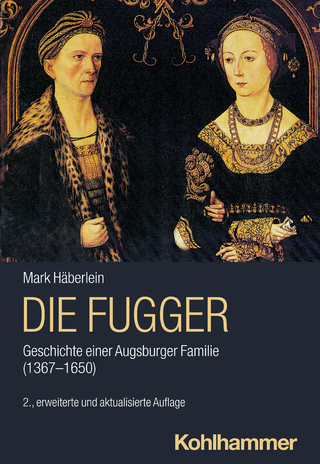
50 Post-Medieval and Modern Finds
From the Portable Antiquities Scheme
Seiten
2024
Amberley Publishing (Verlag)
978-1-3981-1467-8 (ISBN)
Amberley Publishing (Verlag)
978-1-3981-1467-8 (ISBN)
The latest volume in Amberley's popular 50 Finds series, published in partnership with the Portable Antiquities Scheme. This time looking at 50 post-Medieval and modern finds.
The period between 1500 and the present day has directly formed the world we live in. Growing population, increased urbanisation, industrialisation, and ever quickening pace of movement and technological change have radically reshaped society, global connections and individuals’ horizons. It is the time from which we have the most written records, pictures, and, later, photos and videos. Archaeology’s contribution to understanding this period might therefore be less obvious, but it has great potential to connect us to people’s lived experience.
Artefacts provide important evidence where records may not exist, such as private beliefs, social lives and informal dress. They bear witness to those less likely to appear in historical records, such as the poor and children. Objects also provide a tangible link to events. In doing so they confront us with their reality and the experience of the individual humans who lived through this most formative of periods.
The period between 1500 and the present day has directly formed the world we live in. Growing population, increased urbanisation, industrialisation, and ever quickening pace of movement and technological change have radically reshaped society, global connections and individuals’ horizons. It is the time from which we have the most written records, pictures, and, later, photos and videos. Archaeology’s contribution to understanding this period might therefore be less obvious, but it has great potential to connect us to people’s lived experience.
Artefacts provide important evidence where records may not exist, such as private beliefs, social lives and informal dress. They bear witness to those less likely to appear in historical records, such as the poor and children. Objects also provide a tangible link to events. In doing so they confront us with their reality and the experience of the individual humans who lived through this most formative of periods.
Laura Burnett was Somerset Finds Liaison Officer for ten years. She studied Archaeology at Cambridge and London and is currently doing a PhD at Exeter. She researches the development of money and tokens and Medieval and post-Medieval finds. Probably her favourite find she has recorded was a Roman chicken. Rob Webley developed his expertise in archaeological small finds working for the Portable Antiquities Scheme, mainly in Hampshire, before training others nationwide. He researches finds of the medieval to modern periods and is particularly interested in horse gear and looking at material links between Britain and the Continent.
| Erscheinungsdatum | 03.01.2024 |
|---|---|
| Reihe/Serie | 50 Finds |
| Zusatzinfo | 140 Illustrations |
| Verlagsort | Chalford |
| Sprache | englisch |
| Maße | 165 x 234 mm |
| Gewicht | 305 g |
| Themenwelt | Geisteswissenschaften ► Archäologie |
| Geschichte ► Allgemeine Geschichte ► Mittelalter | |
| Geisteswissenschaften ► Geschichte ► Regional- / Ländergeschichte | |
| ISBN-10 | 1-3981-1467-7 / 1398114677 |
| ISBN-13 | 978-1-3981-1467-8 / 9781398114678 |
| Zustand | Neuware |
| Informationen gemäß Produktsicherheitsverordnung (GPSR) | |
| Haben Sie eine Frage zum Produkt? |
Mehr entdecken
aus dem Bereich
aus dem Bereich
eine neue Geschichte des Mittelalters
Buch | Hardcover (2023)
C.H.Beck (Verlag)
CHF 53,20
Geschichte einer Augsburger Familie (1367-1650)
Buch | Softcover (2024)
Kohlhammer (Verlag)
CHF 47,60


